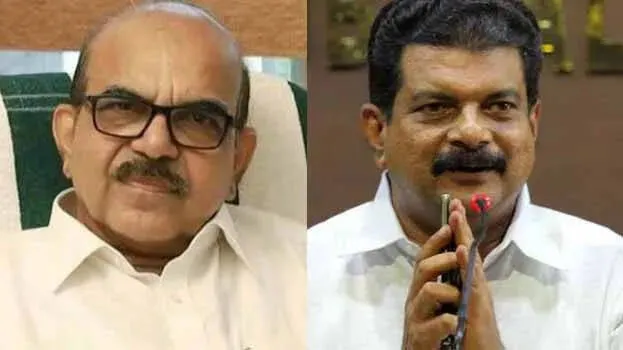
BRITS are bracing for a tax raid in Rachel Reeves' gloomy Halloween Budget - with fags, booze and benefits at risk. Today is the first Labour budget for 14 years - and the first ever to be delivered by a female Chancellor. A raft of tax hikes are set to hit as Rachel Reeves tries to plug the "£22billion black hole" she says she's found in government accounts.
Writing in The Sun on Sunday, Reeves said she will have to make "tough decisions" - but the pain will be worth it. We revealed the Chancellor will pledge £500million more for fixing roads and ending the pothole crisis. By Ryan Sabey, Deputy Political Editor RACHEL Reeves will be grilled in a special Budget edition of The Sun’s Never Mind The Ballots show today.
Our Political Editor Harry Cole will put the Chancellor on the spot shortly after she’s finished delivering her crucial address in the House of Commons . It will be available to watch on thesun.co.
uk , YouTube and Sun social channels at 5.30pm. Topics will include her decision on whether to spare motorists a fuel duty rise, and the expected eye-watering tax rises she will impose.
Since its launch earlier this year, NMTB has cemented its place at the heart of British politics . During the General Election campaign The Sun was the only print publisher to host back-to-back grillings of Rishi Sunak and Sir Keir Starmer . Footage from The Election Showdown has been viewed over 15 million times.
NMTB has also featured interviews with ex-PMs Boris Johnson and Liz Truss , as well as senior politicians Nigel Farage , James Cleverly , Wes Streeting , Steve Reed and Bridget Phillipson . She will spend billions freeing up two million extra NHS appointments. Read More Politics And more than 1million workers are set to get a bumper pay rise as the National Living Wage goes up But Reeves is set to hike bus fares and freeze income tax thresholds for years.
Carers and homebuyers could be among the winners in today's Budget - while drivers and pensioners could be the worst hit. Sir Keir Starmer has vowed to listen to Sun readers ahead of a make-or-break Fuel Duty decision. Most read in Money But voters have been warned to brace themselves for a salvo of tax rises.
Stay tuned for live updates on today's Budget - and what it means for you. By Harry Goodwin Today is the first Labour budget for 14 years - and the first ever to be delivered by a female Chancellor. Brits are bracing for a raft of tax hikes as Rachel Reeves tries to plug the "£22billion black hole" she says she's found in government accounts.
Here are five other budgets which have caused a stir over the years. 1979 - Geoffrey Howe, Conservative Margaret Thatcher's Chancellor Geoffrey Howe slashed both the top rate of income tax and the standard rate. He also doubled VAT - shifting the tax burden from income to consumption in a huge change for Brits.
Howe also eased controls on foreign exchange in a bid to control inflation. The budget signalled a massive break from the last Labour government and set the pattern for decades to come. 1988 - Nigel Lawson, Conservative Nigel Lawson (dad to domestic goddess Nigella) massively slashed income tax again.
The deputy Commons speaker twice cleared the chamber amid noisy protests from Labour MPs slamming the tax cuts. Lawson also set off a property bonanza by announcing an end to double mortgage tax relief for couples buying homes. 1993 - Norman Lamont, Conservative In March 1993 the economy was still reeling from Black Wednesday, when the pound crashed out of the European exchange rate mechanism.
Lamont announced tax rises including VAT on domestic gas and electricity. Later that year Lamont's successor Ken Clarke froze personal tax allowance and brought in stealth taxes on insurance and plane passengers. The Lamont and Clarke budgets marked the end of the Tories's scything tax cuts - and set the stage for Labour's return to office in 1997.
2002 - Gordon Brown, Labour Brown raised national insurance by a penny on the pound to fund higher spending on the NHS. The future PM had fretted over a possible backlash from voters who had re-elected Labour in 2001. But he managed to pull off the largest rise in health spending in the history of the NHS.
2009 - Alistair Darling, Labour Labour's last budget before today came amid the credit crunch and soaring unemployment. Darling ramped up taxes and borrowing in a bid to fill up draining Treasury coffers. Tory leader David Cameron blasted Labour's 'utter mess' - and was in power a year later.
2022 - Kwasi Kwarteng, Conservative Kwarteng unveiled his economic package less than a month after becoming Liz Truss's Chancellor. Technically, it was a fiscal statement rather than a budget - but it turned out to be just as seismic. Rising Tory star Kwarteng announced £45billion in tax cuts including a drop in all rates of income tax.
Markets took frights and the pound went into freefall before the Bank of England waded in to stop a run on UK pension funds. Mortgage rates soared and Kwarteng was out of the job just three weeks later. just now By Jon Rogers National Living Wage rise More than three million workers are set to get a bumper pay rise as the National Living Wage goes up in the Budget.
Chancellor Rachel Reeves has confirmed major plans to boost the minimum wage by more 6.7% in April 2025. The rise marks a pay boost worth £1,400 a year for low-wage workers.
They will see their pay packs rise from £11.44 per hour to £12.21.
Meanwhile, the National Minimum Wage for 18 to 20-year-olds will be hiked from £8.60 to £10.00 an hour – the biggest increase in the rate on record.
It will see eligible youngsters in full-time employment earn an additional £2,500 a year. Copy link Copied 3 minutes ago By Ashley Armstrong The Reeves meltdown test One of the biggest tests Rachel Reeves will face today is whether she causes a mini-Budget style meltdown. Not cratering the financial system should be the minimum requirement for a Chancellor, but investors are jittery ever since Liz Truss and Kwasi Kwarteng’s chaotic reign rocked markets two years ago.
The main thing to watch will be what happens to gilt yields - they are the biggest and easiest telltale sign of investors’ views on the health of the UK economy and its leadership. Gilts are simply another term for portions of UK government debt that can be traded by investors. Yields refers to the cost on them to the government and the interest paid to investors, many of which are our pension funds.
These bonds are packaged up for a fixed number of years, such as 5, 10 or 30 years although the benchmark to watch is 10 year gilts. The yield increases when the price of the bond falls to reward the investor for the extra risk of holding a cheaper asset. In the run up to the budget, the yields on benchmark 10 year government debt has crept higher to 4.
32 per cent. This is worryingly back to the level last seen in the chaos of the mini-budget two years ago. If it rises significantly higher the Chancellor will be facing a much bigger debt interest bill and an even bigger reputational issue.
Copy link Copied 7 minutes ago By Jon Rogers Brits will have to stomach tax rises of up to £35billion Rachel Reeves will today insist the prize of a better Britain is immense — but the country will have to stomach tax rises of up to £35billion. The Chancellor will say there is no short-cut to economic stability while plotting to put “more pounds in pockets”. Money will be ploughed into the NHS , rebuilding schools and building more affordable homes , as she vows to “invest, invest, invest” to drive growth in her Budget plans.
But she faces ex-PM Rishi Sunak , who has called out the Government for deception and broken promises, in his last major outing as Tory leader. He will criticise her as she is set to change the fiscal rules, allowing for a borrowing spree of up to £50billion. Ms Reeves will insist workers’ pay will be protected as she will not raise income tax, national insurance and VAT.
Reeves will insist workersâ pay will be protected as she will not raise income tax, national insurance and VAT Credit: Reuters Copy link Copied 15 minutes ago By Jon Rogers The Sun says...
Today will see the most significant Budget in years and potentially the most damaging. Rachel Reeves must ensure it isn’t, regardless of her desperation for funds. Since before the election she has vowed not to hammer “working people”.
Nothing could do so more instantly than ending the 14-year fuel duty freeze won for Britain by The Sun’s Keep It Down campaign . It would fleece every driver of about £4 each time they fill up. Britain is united in opposition to that, a clamour the Chancellor would be crazy to defy.
But, that aside, there will be plenty more tax rises. Our overall burden was already at a shameful 70-year peak under the last Government. Labour made hay with that.
Yet here they are, choosing to raise it further while blaming the Tories. Labour claim this Budget will “fix the foundations” of a crumbling country. So it is baffling to see the NHS once again poised for another massive cash injection NOT tied to the reforms Health Secretary Wes Streeting says are vital for any new money to have an effect.
The Tories raised NHS funding to unprecedented levels. It is not the answer. It locks us into higher taxes forever.
How will a high-tax, high-regulation, low-productivity Britain ever double its growth, as Keir Starmer says he wants? Rachel Reeves is Britain's first female Chancellor Credit: PA Copy link Copied 18 minutes ago By Jon Rogers 'Please just leave us alone Chancellor' A senior drinks boss has told Rachel Reeves: “Please just leave us alone Chancellor.” Ralph Findlay, chairman of C&C Group who own Magners cider and Tennent's Lager made the last ditch plea ahead of the Budget today. He said the industry was facing the threat of higher alcohol duty, bottle recycling and packaging charges, higher staff wages and the end of business rates relief.
He told Sun Business: “There is already quite the burden on the sector as you can see from the number of pub closures. "The sector would do well with less interference.” His eleventh-hour call came as C&C Group said its sales of cider had slipped by 3 per cent to £715million due to a soggy summer.
This was despite Tennent’s, already Scotland’s most popular beer, gaining even more market share due to Scotland’s involvement in the Euros in Germany. Copy link Copied 23 minutes ago By Jon Rogers How investors might fare in the Budget Experts suggest the Chancellor could target the income people receive from dividends by increasing capital gains tax rates. Capital gains tax is charged on the profit you make when you sell something that has increased in value.
Currently basic-rate taxpayers pay 10% on most assets and 18% on residential property. Meanwhile, higher-rate taxpayers pay 20% and 24% respectively. But Myron Jobson suggests that the government might raise these rates or align them more closely with income tax rates.
“This could result in higher tax bills for investors when they sell assets at a profit,” he said. “Our calculations show that CGT liability for investors across the income spectrum could double, at best, if CGT rates are aligned with income tax.” Copy link Copied 26 minutes ago By Jon Rogers How pensioners might fare in the Budget Labour has committed to not increasing the income tax, National Insurance and VAT rates.
However, millions of pensioners will be dragged into higher tax bands or forced to pay tax on their state pension for the first time. The state pension is set to rise by around £460 next year, which could tip thousands of pensioners over into a higher tax band due to fiscal drag. A pensioner who is entitled to the full state pension would receive around £11,962 a year if the state pension rises as expected.
If they had a small private pension paying just £609 a year or more they could be forced to pay tax on their income. Former pensions minister Baroness Ros Altmann warns that many pensioners will also need to complete a tax return for the first time. “Many pensioners have never before paid tax themselves or filled in a tax return,” she said.
“Pensioners who are on the new state pension (i.e. the younger pensioners) should get a form from HMRC to let them know how and when to pay the tax they owe.
“But older pensioners will not hear from HMRC and, if they don’t know they need to pay the tax, or how to do so, they could end up racking up fines and penalties” The Government has also confirmed that the £2 bus fare cap for single journeys will be hiked to £3 until the end of 2025. The existing cap was introduced by the previous Conservative government to help with the cost of living and was set to expire on December 31, 2024. The change would mean that someone using the bus every weekday would be forced to spend an extra £40 a month on the transport .
Copy link Copied 26 minutes ago By Jon Rogers How working people might fare in the Budget The Chancellor is said to be considering freezing income tax thresholds for several more years in a bid to raise an estimated £7billion. Tax thresholds were frozen in 2022 by the previous Conservative government but are due to rise again from 2028. As worker’s wages rise in line with inflation this could drag thousands of people into higher tax brackets through a concept called fiscal drag.
Freezing tax thresholds increases people's taxable income without putting up tax rates. This gives the government additional revenue. The amount of income you do not have to pay tax on is set at £12,570.
The basic rate of income tax is 20% on between £12,571 to £50,270. Meanwhile, the higher rate is 40% between £50,271 to £125,150 and the additional rate is 45% on over £125,140. It comes as the Labour government previously promised to not raise taxes for working people.
Ministers have been asked to spell out who will be exempt from this possible rise. In a speech today in Birmingham, Kier Starmer, said the working people of this country know "exactly who they are". The PM added he would "protect the payslips of working people" who were "the golden thread" of the government's agenda.
Myron Jobson, senior personal finance analyst at Interactive Investor, said this is a “sneaky tax grab” which is set to hit those in the lowest income brackets the hardest. “Should the Chancellor choose to freeze income tax thresholds beyond the current 2028 deadline, the implications for Britons could be profound,” he said. “The gradual erosion of disposable income through higher effective tax rates is a subtle but significant burden on households.
” Copy link Copied 27 minutes ago By Jon Rogers How drivers might fare in the Budget There has been no mention of an extension to the temporary 5p fuel duty cut, which is set to expire in March next year. Fuel duty is currently set at 52.9p per litre of petrol and diesel after a 5p cut in early 2022 to compensate for rising oil prices caused by Russia’s invasion of Ukraine .
Forecasters have predicted that fuel duty may rise by 7p in the budget, which would force the average driver to spend £175 more a year on petrol or diesel fuel. Meanwhile, in April next year there is a chance that an annual rise in fuel duty will push up prices again. “Taken together they could make filling up at the pumps horribly painful,” warns Sarah Coles, head of personal finance at Hargreaves Lansdown.
The Sun has backed drivers as part of the Keep It Down campaign with FairFuelUK, with rates of fuel duty not rising since the start of 2011. But speculation is mounting Rachel Reeves will reverse the 5p cut and reinstate an inflationary increase next week. This could add £3.
85 to the cost of filling up an average family car. Copy link Copied 28 minutes ago By Jon Rogers How renters might fare in the Budget Rachel Reeves is set to slash the “Right to Buy” discount, which is given to those who want to purchase their council house. The Government said it will protect council housing “existing stock”, which will mean thousands more homes remain available to rent.
Some have argued this is an attack on the aspiration of owning your own home. Currently the maximum discount you can get through Right to Buy is £102,400 across England. In London boroughs this climbs to £136,400.
It increases each year in April in line with inflation . The level of discount you can get depends on: How long you’ve been a tenant with a public sector landlord The type of property you are buying The value of your home You get a 35% discount on a house if you’ve been a public sector tenant for between three and five years. After five years the discount increases 1% for every extra year you’ve been a public sector tenant, up to a maximum of 70%.
Copy link Copied 28 minutes ago By Jon Rogers How the self-employed might fare in the Budget The Chancellor is considering increasing national insurance on employers’ pension contributions but self-employed people could be spared the change. Employers currently pay national insurance for most workers earning more than £9,100 a year. The amount they pay is equivalent to 13.
8% of the employees earnings above this figure. The Chancellor is considering upping this rate in a move which is predicted to raise £15.4 billion.
While it won't affect employees directly, businesses and bosses have warned that it could mean they reduce or stop hiring staff, or that pay rises are pared back, having a knock-on effect on working people. But self-employed people will be spared the change as they have a different national insurance system. Self-employed workers pay Class 4 contributions, which are 6% on profits of £12,570 up to £50,270.
Above this threshold they pay 2%. The different system could mean they are better off than company employees in the Budget. Copy link Copied 29 minutes ago By Jon Rogers How home buyers could fare in the Budget Home buyers are also set to benefit from the Budget as the Government has confirmed that it will deliver more affordable housing.
On Saturday it announced that it will build up to 5,000 new affordable social homes . There will be a £500million top up for the Affordable Homes Programme, which will bring the total amount of funding to more than £5 billion. The Chancellor has also confirmed a new “five-year social housing rent settlement” allowing it to invest in tens of thousands of new homes.
David Hollingworth , mortgage broker at L&C, said: “This scheme will hopefully make things easier for first-time buyers in the future but it will take time for those properties to become a reality.” But the Government has not yet confirmed whether it plans to extend the current stamp duty thresholds. If it fails to do so it could negatively impact first-time buyers.
Stamp duty land tax is due if you buy a property or a piece of land which is worth more than a certain price in England and Northern Ireland. In 2022 the rate at which people need to pay it was increased from £125,000 to £250,000 for those taking a second step on the ladder. Meanwhile, for first-time buyers it rose from £300,000 to £450,000.
A discounted rate on purchases of up to £625,000 was also brought in. But these thresholds are set to expire on March 31, 2025, at which point they’ll return to the previous levels. If the higher thresholds are not extended then it could mean first-time buyers are forced to pay tax bills which are £15,00 higher than before.
David Hollingworth added: “If you’re closing in on being able to start a realistic property search, you are likely to be disheartened to see the additional relief for stamp duty disappear and may have hoped for an extension or for it to be made permanent. “If that doesn’t happen then it could add another slug of costs if you’re not able to make the deadline at the end of March.” Copy link Copied 30 minutes ago By Jon Rogers How carers might fare in the Budget An extra 60,000 people will be able to claim government support as the Chancellor is expected to make a key change to Carer’s Allowance this week.
Rachel Reeves is tipped to raise the limit people can earn before they are no longer eligible for carers allowance from £151 to £181 a week, The Sun first revealed. The £30 increase would be the largest uplift in the threshold since the benefit was introduced in 1976. Carer’s Allowance is worth £81.
90 a week and is paid to people who look after a severely disabled child or adult. It is set to rise by 4.1% next year, which could mean that carers receive £85.
18 a week, £3.28 more than they currently do. The move has been welcomed by charities.
Helen Walker, chief executive of Carers UK said: "It's been heartbreaking and frustrating to hear carers having to choose between paid work and Carer's Allowance simply because of a rise in the National Living Wage - something that is supposed to benefit low paid workers, not put them out of work. We're delighted that this is being addressed." Copy link Copied 31 minutes ago By Jon Rogers What is the Budget? THE Budget is big news and where you'll often hear announcements about taxes.
But what exactly is it? The Budget is when the Government outlines its plans for the economy including taxation and spending. The Chancellor of the Exchequer delivers a speech in the House of Commons and announces plans for things like tax hikes, cuts and changes to Universal Credit and the minimum wage . At the same time, the Office for Budget Responsibility (OBR) publishes an independent analysis of the UK economy.
Usually, the Budget is a once-a-year event and usually takes place in the Autumn, with a smaller update known as the Spring Statement. But there have been exceptions in recent years when there have been more updates, or the announcements have taken place at different times, for example during the pandemic or when there is a General Election. On the day of the Budget, usually a Wednesday, the Chancellor is photographed outside No 11 Downing Street with the red box.
They then head to the House of Commons to deliver her speech, at around 12.30 following Prime Minister's Questions (PMQs). Changes announced in the Budget are sometimes implemented the same day, while others may not have a set date.
For example, a change to tobacco duty usually happens on the same day, pushing up the price of cigarettes. Some tax changes are set to come in at the start of a new tax year, which is April 6. Other changes may need to pass through Parliament before coming into law.
Copy link Copied 33 minutes ago By Jon Rogers Likely Budget winners and losers Carers and homebuyers could be among the winners in the Budget this week - while drivers and pensioners could be the worst hit. The Prime Minister has said the Budget will be for “working people” but has also warned that it will be a “long, difficult path”. There will also likely be confirmation of how much benefits and the state pension will rise this year.
Several policy changes have already been confirmed though, including a rise in the cost of bus fares and increase in the amount of affordable housing. The exact details of what else will be announced have not yet been confirmed, but several plans have been mooted. Copy link Copied 37 minutes ago By Jon Rogers Cost of Government creeping higher Government bonds, or gilts, are seen as the telltale sign of global investors’ opinion on the health of the UK economy and its leadership.
They also shape investors’ views on whether a Budget has been a success or failure. Gilts are issued by the Government as parcels of debt that pay out a return — or coupon — to investors over a fixed term, such as five, 10 or 30 years. The yield reflects the amount of interest paid, and increases when the price of a bond falls to reward the investor for the risk of holding a cheaper asset.
Copy link Copied.













